Organizations Involved
Partner Organizations

University of Macerata, Italy – Leader will participate in this project with the relevant effort and expertise of the Department of Education Cultural Heritage and Tourism, expert in technology-enhanced learning. It expresses its excellence through several research publications in international journals, the high level of exchange programs with leading European universities and the participation in European projects, especially in the fields of Educational Science, ICT, E-learning. Since about 15 years, UNIMC has introduced an e-portfolio as an educational practice that accompanies the student from the first to the fifth year and requires activities that are transversal to the teachings. It has been used by about 5000 students to date and many of them report continuing to use it even after graduation and after starting the teaching profession. UNIMC will coordinate the project (WP1); contribute to the in–depth study and mapping of practices (WP2); lead the WP3, to develop and implement the digital workspace in VN and KH (WP3); contribute in the creation of the MOOC (WP4); participate in the quality monitoring and evaluation of the project (WP5); participate in the dissemination activities (WP6).
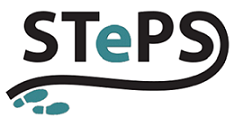
STEPS, Italy is a research organisation active in the field of training and education, project management, research of labour market. The organization works nationally and internationally to promote educational research, reflection and rethinking of traditional learning approaches. Steps works closely with European Training Foundation, and is facilitating the transfer of best practices inside the Community of Innovative Educators. Steps will contribute to the dissemination of the project through a wide transnational network. Furthermore, Steps pioneers approaches to formal and non-formal learning to enable personal growth as well as inclusive and sustainable change in organizations and territories. It helped the elaboration of the proposal and will participate in the research at EU level as well co-coordinate the WP4. It is responsible of the WP5 Quality and Monitoring, thanks to the wide experience in evaluation and assessment of EU projects. Steps will also provide contributions in the creation of the educational materials (WP2), in the analysis of the final results, in the draft of the reports.

University of Alicante, Spain was founded in 1979. The UA is firmly interlinked with its socio-economic environment, cooperating with enterprises in teaching, research, technology transfer and innovation. It is a dynamic public university which provides a full spectrum of services for students, facilitating a variety of ways for them to connect with potential employers, building bridges between University & enterprises and promoting entrepreneurship culture amongst students. At the Employment Center they make available to the university community and companies and institutions a wide portfolio of services both in terms of internships and employment and entrepreneurship, that includes individualized guidance activities, training programs, contests, internship programs and job offers with the aim of increasing the skills and opportunities of the students of the University of Alicante in their insertion into the labor market. UA will coordinate the project in Spain (WP1); will lead the in–depth study and learning achievements recognition (WP2); will contribute in the WP3, to develop and implement the workspace (WP3); will facilitate content and materials in the creation of the MOOC (WP4); participate in the quality monitoring and evaluation of the project (WP5); participate in the dissemination activities (WP6).

WSG University in Bydgoszcz, Poland is the largest private higher education institution in northern Poland, with almost 5000 students in the central campus of Bydgoszcz plus 7 local campuses in smaller towns and a faculty in Kyiv, Ukraine. The university offers BA and MA programmes in Physical Culture, Pedagogy, Psychology, Administration, Physiotherapy, Nursing, Nutrition, Management, Computer Engineering, etc. Part of the programmes is taught also in English to nearly 900 international students. As an applied sciences university, focused on practice WSG University puts a great emphasis on equpping students and alumni not only with programme-related academic knowledge but also with various skills that suport employability and enterpreneurship. One of the major activities in this field is the Career Office – an administrative unit of WSG established to educate, develop and suport students’ professional potential. Career Office provides students with vocational counselling, potential diagnosis, workshops on labour market, job seeking, CV creation and reviewing, simulation of job interviews. The office also collects and disseminates info on available vacancies from local and regional employers. WSG will coordinate the project in Poland (WP1); contribute to the in–depth study and mapping of practices (WP2); collaborate in the WP3; contribute to the creation of the CMS framework and online environment (WP4); participate in the quality monitoring and evaluation of the project (WP5); lead the dissemination activities (WP6).
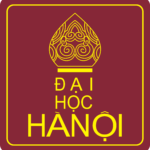
Hanoi University, Vietnam is a partner of several KA2 Capacity Building projects, especially in MOTIVE “Monitoring employment trends of graduates Vietnam” and the LAB MOVIE project on surveying business needs, describing job positions to identify the skills required by job positions. HANU is one of the universities with the most effective internationalisation activities in Vietnam, Hanoi University is currently cooperating with many universities. HANU has had 50 projects approved with more than 500 students receiving scholarships and nearly 200 officials and teachers being exchanged. With solid cooperation and experience in new programs for Vietnamese universities, HANU is playing a role in connecting, building as well as implementing, and supporting the implementation of projects for Vietnamese universities, with Vietnamese universities and Asian universities in region 5. HANU will manage the project at local level, participate in meetings, report to coordinator (WP1); contribute to the in–depth study and mapping of practices (WP2); co-lead the WP3, to develop and implement the platform (WP3); contribute in the creation of the MOOC (WP4); participate in the quality monitoring and evaluation of the project (WP5); participate in the dissemination activities (WP6).
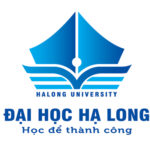
Ha Long University, Vietnam offers 3 post-graduate programs and 17 undergraduate programs. The strong fields of training are: tourism, fisheries, and languages. After 9 years of establishment, Halong University has signed cooperation agreements (as Memorandum of Understanding) with more than 30 foreign partners (including universities, research institutes, and international organizations). In the coming years, the University will continue to maintain and develop the current international cooperation relationships, then expand new cooperation relationships in the direction of multi-lateralization and diversification actively. HALOU will manage the project at local level, participate in meetings, report to coordinator (WP1); co-lead the in–depth study and mapping of practices (WP2); participate to the training and actions to develop and implement the platform (WP3); contribute in the creation of the MOOC (WP4); participate in the quality monitoring and evaluation of the project (WP5); participate in the dissemination activities (WP6).
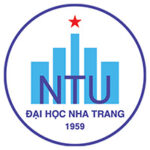
Nha Trang University, Vietnam has 25 faculties, institutes, research centers, technology transfer centers and 8 managerial departments. NTU has paid much intention on raising quality of training towards regional and international standards and HE internationalization in teaching, learning, research, innovation and knowledge transfer. NTU has developed partnerships with universities/institutions worldwide and successfully implemented bilateral and multilateral international projects. NTU has been implementing many international projects, particularly in the Capacity Building in Higher Education. Furthermore, NTU emphasizes building global partnerships with educational institutions, businesses, and international communities. This helps the university expand its vision and create new collaboration opportunities in international projects. In doing so, NTU not only contributes to the development of the local community where it is based but also fosters cultural understanding and integration on a global scale. NTU will manage the project at local level, participate in meetings, report to coordinator (WP1); co-lead the in–depth study and mapping of practices (WP2); participate to the training and actions to develop and implement the platform (WP3); contribute in the creation of the MOOC (WP4); participate in the quality monitoring and evaluation of the project (WP5); participate in the dissemination activities (WP6).
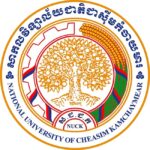
National University of Cheasim Kamchaymear, Cambodia provides education to rural youth who would not otherwise have access to higher education. The university seeks to train a new generation of leaders free from the stress and legacies of Cambodia’s recent history. NUCK is a public higher education institution administered by the Ministry of Education of the Royal Government of Cambodia. Currently NUCK has 5 faculties, including Faculty of Management, of Art, Humanity, and Foreign Language, of Social Science, of Science and Technology, and the Faculty of Agriculture. To date NUCK has produced about 13,500 graduates, who have gained employment in public services, private sectors, and in national and international organizations. NUCK will manage the project at local level, participate in meetings, report to coordinator (WP1); contribute to the in–depth study and mapping of practices (WP2); participate in the training and initiatives to develop and implement the workspace (WP3); contribute in the creation of the MOOC (WP4); participate in the quality monitoring and evaluation of the project (WP5); co-lead the dissemination activities (WP6).
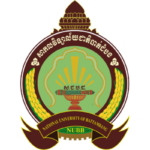
National University of Battambang, Cambodia is a public university, and it provides opportunities to students living in rural areas, especially in the north-western part of Cambodia, to have access to higher education services in order to develop their individual careers as well as to that of local communities while also reducing knowledge gaps between the rural and urban. NUBB work closely with local community, government and non-governmental organization, companies, and consortium universities in the region and the world. NUBB promotes networks leading to better academic results and will foster international links, and strengthen the skills for scientific and technical research works. NUBB will manage the project at local level, participate in meetings, report to coordinator (WP1); contribute to the in–depth study and mapping of practices (WP2); participate in the training and initiatives to develop and implement the workspace (WP3); co-lead the creation of the MOOC (WP4); participate in the quality monitoring and evaluation of the project (WP5); contribute to the dissemination activities (WP6).

